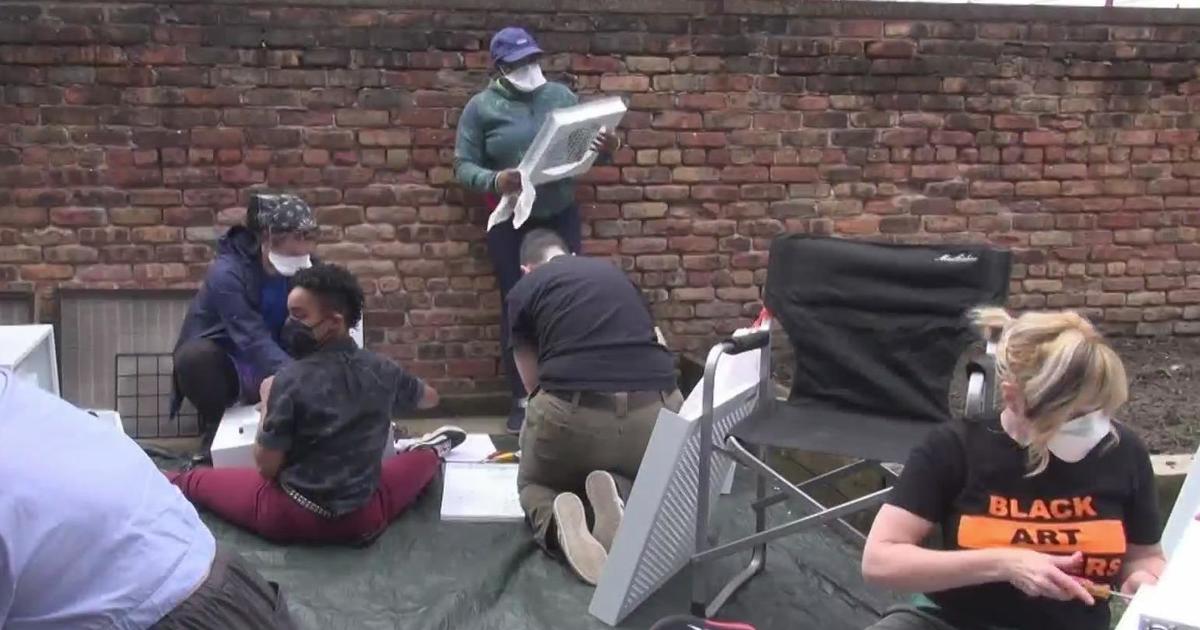Aldermen Advance Measure Protecting Workers From COVID-19 Retaliation
CHICAGO (CBS) -- Chicago workers would be protected from facing workplace retaliation for adhering to public health orders during the COVID-19 pandemic, under an ordinance advanced by the City Council Committee on Workforce Development on Monday.
"This is absolutely essential legislation to protect our critical workers during this challenging time. No one should have to choose between their job and saving lives," Chicago Department of Business Affairs and Consumer Protection Commissioner Rosa Escareno told aldermen during a virtual committee meeting on Monday.
The measure introduced by Mayor Lori Lightfoot would prohibit any business from firing, demoting, transferring, or reducing the pay of any employee who follows public health directives from the governor, mayor, the Chicago Department of Public Health, or their personal healthcare provider.
Current public health orders in Illinois require people to stay at home if they are sick from COVID-19, if they have been exposed to someone else who tested positive for the virus, or if they work at a business deemed non-essential by the governor's executive order.
Non-essential retail businesses have been allowed to provide pick-up or delivery of orders placed by phone or online as "minimum basic operations." The ordinance would provide protections for any employee asked to come to work for any reason beyond those minimum basic operations.
"Workers who are simply following government orders, and trying to keep them and their families safe, should be able to do so without being punished," Escareno said. "All Chicago workers should be guaranteed job safety as they work hard to keep our community safe."
Violations of the ordinance would be punishable by fines of up to $1,000 per offense per day. Businesses that mistakenly believe they have fired or demoted an employee in compliance with public health directives would not be fined if they can show they "relied on a reasonable interpretation" of the directives, and fix their mistake within 30 days.
Employees who face retaliation also could file suit against their employer for up to three times the amount of lost wages.
Escareno told aldermen the Department of Business Affairs and Consumer Protection has a team of 40 investigators who are currently triaging any complaints to give priority to coronavirus-related issues. The department's Office of Labor Standards has a separate team of two full-time staffers focused on retaliation complaints, and director Andy Fox said they have received 32 complaints so far this year.
In other business, the Worforce Development Committee also signed off on an ordinance to shield Chicago employers from lawsuits for six months after the city's "Fair Workweek Ordinance" goes into effect on July 1.
The Fair Workweek Ordinance, approved by the City Council last year, requires many large businesses in Chicago to provide their workers with two weeks' notice of their schedules, in an effort to guarantee employees a predictable schedule.
On Monday, the Workforce Committee backed an amendment to that ordinance that would prohibit workers from filing lawsuits over violations until Jan. 1, 2021.
The city would still have the authority to enforce fines of $300 to $500 against businesses that violate the ordinance during the first six months it is in effect.
Escareno said preventing lawsuits for the first six months would give businesses time to adjust to the new rules while still providing an avenue for the city to enforce the mandate.
"This commonsense amendment to the Fair Work Week Ordinance will help ease the implementation of these businesses while ensuring that we are working to put into place all the protections that are embedded into our Fair Work Week Ordinance," she told aldermen.
The Fair Workweek Ordinance covers eight industries -- building services, healthcare, hotels, manufacturing, restaurants, retail, warehouse services -- and applies to workers earning no more than $50,000 a year as full-time employees, or no more than $26 per hour as hourly staff.
Ald. Tom Tunney (44th), who owns Ann Sather Restaurants, abstained from voting on the measure, but warned employers already face a "very complicated" phase-in process once they're allowed to start gear up again under the city's five-phase reopening plan.
"It's just one more disincentive to bring people back," he said "This among other things is going to be a real drag on employment for all workers."
Escareno said the city plans to hold several seminars with employers and workers to educate them about the requirements of the Fair Workweek Ordinance.
Both measures must be approved by the full City Council, which next meets on May 20.



